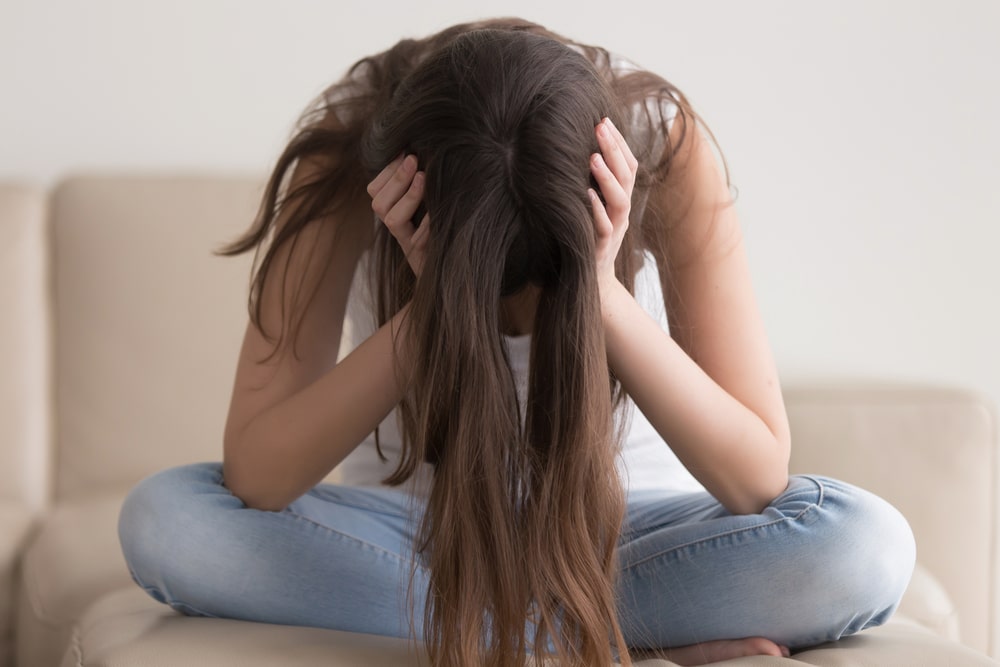
Everyone knows that a person’s college-aged years are some of the most formative of their life. During these years young people are tasked with finding themselves and making their way in the world, which understandably leads to an immense amount of pressure and even mental health issues.
In fact, 1 in 4 college students has a diagnosable illness, with the most common disorders being anxiety and depression. Of that 25% facing mental health difficulties, more than 70% have experienced a mental health crisis while on campus. Unfortunately, it’s all too common for students to feel that they have no one to turn to during such a crisis, which only compounds the issue.
Perhaps most troubling of all is the fact that suicide is the second-leading cause of death for college students in the United States, surpassed only by accidents. With this perspective in mind, it’s clear that combatting college students’ depression is critically important, and one of the most effective methods may be simpler than most would imagine.
What Causes College Students’ Depression?
Depression is most commonly associated with inescapable feelings of sadness, a general state of lethargy, and a loss of interest in normally enjoyable activities. While all of these symptoms are accurate, there are many other signs that a person is experiencing depression, like:
There are many reasons that students might experience what is sometimes referred to as “college depression.” Even if a young person has never exhibited symptoms of depression in the past, they can be brought on by things like homesickness, poor lifestyle choices (like an unhealthy diet and sleep schedule), and the stress of coursework.
Stress is, perhaps, the most pervasive cause for mental health issues on college campuses, and it’s not hard to see why considering 85% of college students report feeling overwhelmed by all they have to accomplish at some point in the school year. Feeling overwhelmed is a common reason that college students fall into depression.
The specific causes for individual students’ depression varies, but their reactions to that depression are often all too similar. Some students resort to unhealthy coping mechanisms in the form of self-medication, and others banish themselves to loneliness.
Compounding Isolation and College Depression
It’s not abnormal for college students to feel isolated when they move to campus and begin their college careers. After all, many students have few friends nearby, and they’re often living away from their families for the first time.
With that in mind, it’s not much of a surprise that in a 2017 survey 64% of college students reported feeling “very lonely” in the previous year. What’s more, only 19% of students said they had never felt lonely. This sense of isolation obviously does nothing to help the mental health issues that a student might be experiencing.
In fact, in a counterintuitive turn of human nature, those experiencing depression are actually likely to isolate themselves further, despite already feeling lonely. The nature of depression causes those experiencing it to decline social interaction and retreat within themselves rather than seek help.

The Potential Dangers of Isolation
Loneliness is more dangerous than most people realize. A number of studies have shown that isolation can augment depression, or make depression symptoms significantly worse if they are already present. It’s not hard to see why—a person grappling with the negative thoughts that depression and anxiety can cause will clearly have a hard time pushing those thoughts away if left alone with themselves.
Beyond that, social isolation has physical repercussions as well. Cognitive decline and poor cardiovascular health are just two of the physical issues associated with isolation. These factors can lead to early death if not remedied.
Perhaps more concerning than the dangers that isolation poses to the body are those that it poses to the mind. For those already grappling with a mental health issue, isolation is the last thing they need as it can make their symptoms much worse.
To summarize, many college students feel lonely and isolated simply by right of the college experience, which can create mental health issues. Existing mental health issues can also bring on feelings of isolation, which serve to increase the severity of the mental health disorder. In turn, the obvious solution is to fight isolation with social interaction.
How Support Groups Positively Affect Students’ Mental Health

Support groups are precisely what they sound like—meetings in which individuals suffering from a shared experience can talk through their issues. The beauty of mental health support groups for college students is that they remove the stigma; students already know that everyone else in the group is enduring the same sorts of symptoms they are, so there’s no judgment in discussing them.
Support groups can fill the gap between medical and emotional support. While college students suffering from mental health issues might be willing to speak with a doctor about their symptoms and receive prescription medication, they’re more likely to discuss their feelings openly with a group of their peers.
Not only does this open discussion help distance people from negative thoughts, it can also help alleviate the sense of social isolation that so many college students experience, which greatly contributes to the severity of their mental illness.
This sort of open, therapeutic treatment is especially important for college students, considering a 2017 study found that nearly 63% of college students had resorted to some sort of self-medication. In turning to drugs or alcohol to numb the severity of their mental health issues, students open themselves up to potential addiction problems.
Finding Mental Health Support for College Students
The first signs of mental disorders usually show up in childhood or adolescence. Although diagnosis and treatment may not occur for years, early recognition can reduce the severity of symptoms later in life. For college students, this coincides with when the occasion they leave home for the first time and have less support from family and old friends. To bridge the gap, many schools are setting up networks to educate and support students.
The numbers show that mental health issues are common on college campuses:
Finding Community on a College Campus
From college test anxiety and academic pressure to alcohol and drugs, all college students face challenges. When there is a mental health issue, the path is even more treacherous. In the best of circumstances, students can reach out to friends, advisors, or hotlines for help. With so many changes, though, they may not even recognize they have a problem. According to the National Alliance on Mental Illness, college students are less likely to ask for assistance than any other age group.
One way schools can help is by creating “safe places” on campus, a setting where students can go to share and get support without being afraid of being judged. The Suicide Prevention Resource Center says a safe environment and peer support are two factors that reduce the risk of suicide. The individual’s personality is the third.

College Mental Health Support Groups
During the COVID-19 pandemic, many students had even fewer resources than before. Even before the crisis, student-run support groups were growing in popularity. Isolation is one of the conditions that make mental illness worse, and students often feel more at ease sharing with their peers than with authority figures. Peer groups can offer support, improve self-worth, offer hope, and lessen the stigma of college depression or other conditions.
Although students may be less likely to seek them out, other groups operate under the supervision of professionals. They have the advantage of making sure information is accurate, encouraging group members, and maintaining good boundaries. Another option is training and managing groups led by students who have been through their own struggles and then trained to provide support to their peers.
Southern California Rehab for College Students
Our team at Mission Harbor Behavioral Center knows how to help college students who are battling college test anxiety or college depression. If you’re looking for a Southern California rehab center for a teen or young adult, contact us today to find out more about our services, or visit our resource center for more information on mental disorders, their symptoms, and their treatment.
Updated 3/23/21
The facilities at Mission Harbor are staffed with trained experts to best assist patients with their mental health issues. We are capable of dealing with any and all cases with a licensed staff, equipment, and approved techniques. Our mission is to help those who want to help themselves, and we support your decision in seeking help.
Get Help Now
Alcohol addiction is extremely difficult to overcome on your own.. Seek specialized help and let professionals guide you in your recovery.

